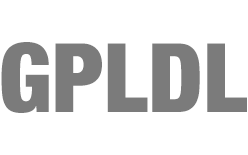The GNU General Public License, or GPL, is a widely used free software license that allows users to freely distribute, modify, and use software. The GPL is designed to ensure that users have the freedom to use, modify, and distribute software, while also protecting the rights of the creators of that software.
One of the key features of the GPL is that it requires users to distribute any modifications they make to the software under the same GPL license. This is known as the "copyleft" provision of the GPL, and it ensures that any modifications to the software remain freely available to other users.
Another important aspect of the GPL is that it prohibits the distribution of software under a different license or as proprietary software. This means that users cannot take software licensed under the GPL and distribute it as proprietary software, or distribute it under a different license that restricts the rights of users.
There are some exceptions to this rule, however. For example, the GPL allows users to distribute software as part of a larger "aggregate" software distribution, as long as the GPL-licensed software is not the primary focus of the distribution.
The GPL also includes provisions to protect the integrity of the software and to ensure that users have access to the source code of the software. This is important because it allows users to understand how the software works and to make modifications if necessary.
There are some potential legal implications to consider when using software licensed under the GPL. For example, if a user modifies GPL-licensed software and then distributes that software, they must make the source code for those modifications available to other users. This can be a complex process, and it's important for users to understand their obligations under the GPL before distributing modified software.
Additionally, users must be careful to properly attribute the original creators of the software when distributing GPL-licensed software. This means including the appropriate copyright notices and other attribution information in the software.
Overall, the GPL is an important tool for protecting the rights of both software creators and users. It allows users to freely use, modify, and distribute software, while also ensuring that the rights of the creators of that software are protected. By understanding the legal implications of the GPL, users can ensure that they are using and distributing software in a way that is consistent with the terms of the license.







